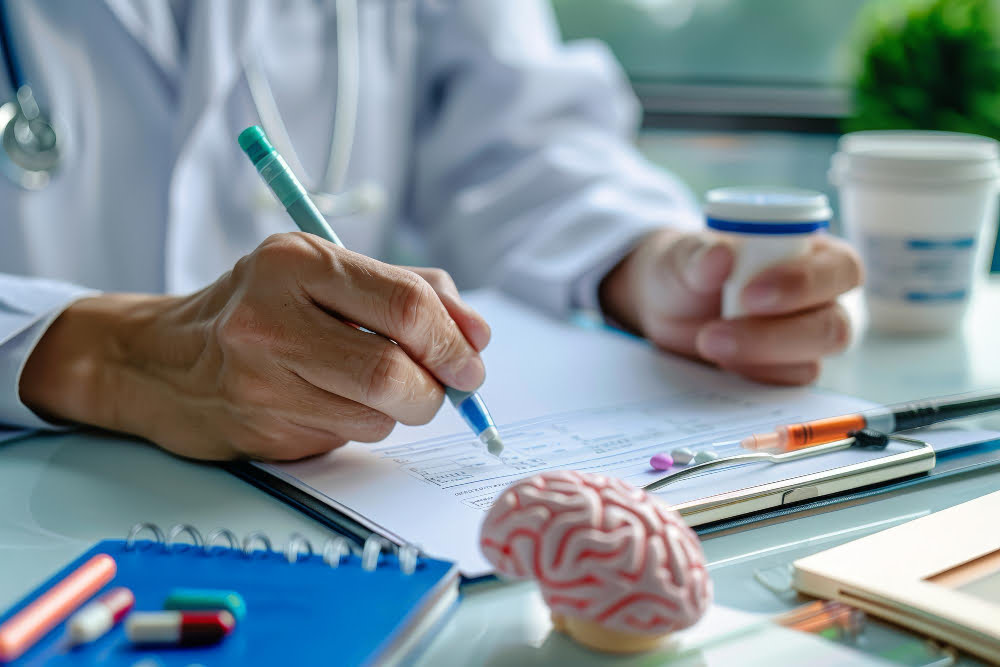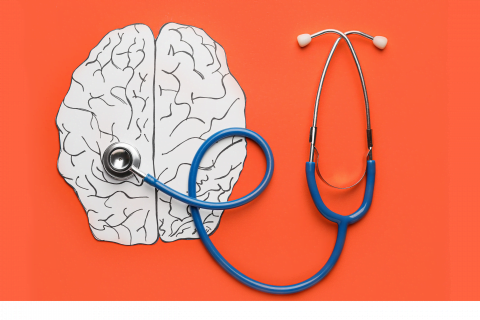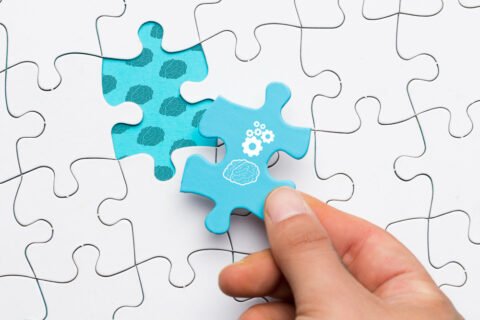As we age, keeping our minds sharp becomes increasingly important. Cognitive function tests for elderly adults are valuable tools for maintaining cognitive health and detecting any potential decline early on. This article delves into the different types of cognitive tests for elderly available, their benefits, and how they can empower both individuals and healthcare professionals to prioritize brain health.
Understanding the Importance of Cognitive Function Tests
Cognitive function refers to our ability to think, learn, and reason. It encompasses various skills like memory, attention, language, problem-solving, and visuospatial abilities. These skills are crucial for daily living, and cognitive function tests help assess their effectiveness in elderly adults.
Early detection of cognitive decline is essential for timely intervention and improved quality of life. These tests can help identify potential signs of dementia or Alzheimer’s disease, allowing for a more proactive approach to managing these conditions.
What Is the Standard Cognitive Test for Seniors?
Diagnosing dementia typically involves a combination of assessments, including cognitive testing. Here, we’ll explore some common tests used by healthcare professionals:
- Mini-Mental State Examination (MMSE): This widely used, 30-question test evaluates orientation, memory, attention, language, and visuospatial skills. It provides a quick snapshot of cognitive function and helps screen for dementia.
- Montreal Cognitive Assessment (MoCA): This more comprehensive test, consisting of 30 tasks, assesses a broader range of cognitive domains, including executive function and visuospatial abilities. It’s considered more sensitive to early cognitive decline compared to the MMSE.
Additionally, a simple yet effective tool for identifying cognitive impairment is the clock drawing test. Patients are asked to draw a clock face and hands showing a specific time. Difficulty with this task can indicate problems with spatial reasoning and executive function, which may be early signs of dementia.

The Benefits of Early Diagnosis
Early diagnosis of dementia or Alzheimer’s allows for several advantages:
- Timely Intervention: Early detection allows for interventions like medication, cognitive therapy, and lifestyle changes that can potentially slow disease progression and improve symptoms.
- Improved Quality of Life: By managing the condition early on, individuals can maintain a higher quality of life for a longer period.
- Planning for the Future: An early diagnosis empowers patients and families to plan for the future, make informed decisions about care, and seek appropriate support.
How Can Questions Help Diagnose Dementia?
A healthcare professional may ask questions about an individual’s:
- Recent Events: Difficulty recalling recent events or conversations can be a sign of memory problems.
- Daily Activities: Assessing how well someone manages daily tasks provides insights into potential cognitive decline.
- Changes in Behavior: Changes in mood or personality can also be indicators of underlying cognitive issues.
These questions, along with cognitive tests for elderly, create a comprehensive picture of an individual’s cognitive health.
Typical Tests for Cognitive Functioning in the Elderly
Several tests are used to assess cognitive function in elderly adults. Here are some of the most common ones:
- MMSE and MoCA: As mentioned earlier, these are standardized tests that evaluate various cognitive domains.
- Clock Drawing Test: This simple test assesses visuospatial skills and executive function, which are often affected in early dementia.
The MoCA test, with its broader scope, is generally considered a more effective tool for assessing cognitive function in older adults, particularly for detecting early decline.

Cognitive Assessments and Their Role
A cognitive assessment for the elderly is a series of tests designed to evaluate different aspects of cognitive function. These assessments help identify:
- Cognitive Deficits: Early signs of memory loss, attention problems, or language difficulties can be revealed through these tests.
- Need for Further Evaluation: Depending on the results, further diagnostic testing may be recommended.
- Intervention Strategies: The assessment helps determine the most appropriate interventions to support cognitive health.
Common Cognitive Tests Explained
Let’s explore some frequently used cognitive tests for seniors in more detail:
- Mini-Mental State Examination (MMSE): This 30-question test assesses various cognitive skills and is a widely used screening tool for dementia.
- Montreal Cognitive Assessment (MoCA): This more comprehensive 30-point test is considered more sensitive for detecting early cognitive decline.
- Clock Drawing Test: A simple yet informative tool for assessing visuospatial and executive function.
- 5-Word Memory Test: This short test evaluates short-term memory by asking the patient to remember and recall five words after a brief delay.
There are also brief assessment tools like the 12-question cognitive test, which screens for various cognitive domains, and the 2-finger test, which assesses motor coordination and cognitive function.
Functional Tests and Early Signs of Decline
While cognitive tests assess brain function, functional tests evaluate an individual’s ability to perform daily activities. Three common functional tests for older adults include:
- Activities of Daily Living (ADL) Scale: This assesses basic tasks like bathing, dressing, and eating.
- Instrumental Activities of Daily Living (IADL) Scale: This evaluates more complex tasks like managing finances, using transportation, and taking medications.
- Timed Up and Go (TUG) Test: This measures how long it takes an individual to stand up, walk a short distance, turn around, walk back, and sit down again.
These tests help identify potential decline in independence and can be used alongside cognitive tests for a more holistic picture.
Recognizing Warning Signs
Early detection of cognitive decline is crucial. Here are some common warning signs to be aware of:
- Memory Loss: Forgetting recent events, conversations, or frequently misplacing items can be early indicators.
- Difficulty with Problem-Solving: Challenges with planning, organizing, or making decisions may arise.
- Language Issues: Trouble finding words, using incorrect words, or having difficulty following conversations.
- Changes in Mood or Behavior: Increased confusion, withdrawal from social activities, or personality changes can be signs of underlying issues.
If you notice any of these warning signs in yourself or a loved one, it’s important to consult a healthcare professional for further evaluation.

Most Widely Used Cognitive Test for Elderly
The Mini-Mental State Examination (MMSE) remains the most widely used cognitive test for elderly adults due to its simplicity and ease of administration. However, the MoCA test is gaining traction due to its comprehensiveness and sensitivity to early cognitive decline.
Cognitive Skills and Senior Adults
The key cognitive skills for senior adults encompass:
- Memory: The ability to encode, store, and retrieve information.
- Attention: The ability to focus, sustain concentration, and filter out distractions.
- Executive Function: Skills like planning, organizing, decision-making, and problem-solving.
- Language: The ability to understand and use spoken and written language effectively.
- Visuospatial Skills: The ability to process visual information and navigate spatial environments.
Maintaining and stimulating these cognitive skills is essential for overall well-being in elderly adults.
Standard Cognitive Assessments vs. Online Tests
The standard cognitive assessments administered by healthcare professionals are generally more reliable and comprehensive than online tests. Online tests can provide a preliminary check, but they may not be standardized or sensitive enough to detect subtle cognitive decline.
It’s important to consult with a healthcare professional for a proper diagnosis.
Supporting Loved Ones During Testing
If a loved one is undergoing cognitive testing, here are some ways to support them:
- Offer Reassurance: Express your support and understanding throughout the process.
- Accompany them to Appointments: Help them feel comfortable and answer any questions they may have.
- Review Results Together: Discuss the results with the healthcare professional and ask questions for clarification.
- Be Patient and Encouraging: Cognitive decline can be challenging. Provide ongoing support and encouragement.
Lifestyle Changes for Cognitive Health
Certain lifestyle changes can positively impact cognitive function in elderly adults:
- Regular Exercise: Physical activity can improve blood flow to the brain and promote cognitive health.
- Healthy Diet: Eating a balanced diet rich in fruits, vegetables, and whole grains nourishes the brain.
- Mentally Stimulating Activities: Engaging in puzzles, games, or learning new skills can help keep the mind sharp.
- Quality Sleep: Getting enough restful sleep is crucial for cognitive function and memory consolidation.
- Social Interaction: Maintaining social connections can stimulate cognitive function and combat isolation.
By incorporating these lifestyle changes, individuals can take a proactive approach to maintaining cognitive health as they age.



